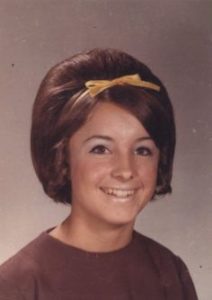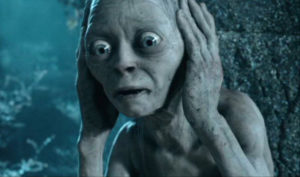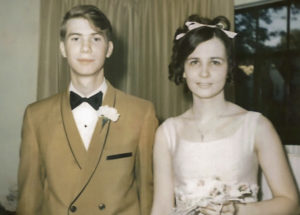When I was a student in high school, girls had carried around tattered old copies of books like GONE WITH THE WIND, and PEYTON PLACE. During my first year of teaching, more than half of the girls in the school carried, among their other books, copies of Erich Segal’s wildly, if mysteriously, popular LOVE STORY, a sentimental Romeo and Juliet kind of tragedy of surprising brevity, that became a best seller and stayed on the charts for way too long. I read it myself just so that I could discuss it intelligently, if not enthusiastically, with the girls in my classes. Reading tastes for boys had not changed much since my days in high school. MAD MAGAZINE was still at the top of their list of “cool” reading material with CRACKED coming in a close second. These were tough competition for the selections I was assigning my freshmen, books like, GREAT EXPECTATIONS, 1984, ROBINSON CRUSOE, THE GRAPES OF WRATH, THE OLD MAN AND THE SEA, JUNGLE BOOK, THE PEARL, ALL CREATURES GREAT AND SMALL, TREASURE ISLAND, THE PRINCE AND THE PAUPER, LITTLE WOMEN, and NIGHT (Wiesel). Students also had to read at least two other books of their own choice, submitting written reports on them by the end of the term. To get my freshmen thinking about those extra book possibilities, I compiled a list of titles, most of which had not been made into films, with brief summaries of the stories. Two of those titles and summaries I fabricated completely, curious to see if anyone might try to do a report on a book that didn’t even exist. Freshmen are experts at creating more baloney than Alaska creates snow, so it was a matter of interest to see what might happen.
FIRST BASE, SECOND BASE I said was about a boy named Carl from the slums of New York’s lower East Side, who became a great player for the Yankees, despite grinding poverty and childhood illness. The other phony book was ROSES AND THORNS, the story of an Irish girl named Fiona, who rose from foster care to become, with her husband’s help, a great nurse and advocate of child care. I added the comment that I had not read those two particular books. Two boys turned in reports on FIRST BASE, SECOND BASE, padded with the most creative but ridiculous rubbish. Three girls submitted their reports on ROSES AND THORNS, providing even more extraneous nonsense than the boys had been able to invent, including some silly stuff about the author. All this showed me that students could become great opportunists when given the chance, especially if it meant not having to do a lot of extra work. It was also a mirror image of what I had been as a high school freshman. It made me begin to think that maybe sneaky people could make decent teachers for high school kids.
Debbie Brown, who had already plagiarized Elizabeth Barrett Browning’s most famous poem, asked me one afternoon if she could do a report on a book called CANDY, and thinking she had said CANDIDE, I gave her the OK. At the time, I thought that Voltaire’s satire might be a bit much for Debbie to digest, but it was a relatively short book, so I thought that if she had any problems with it, she could come to me for help. I thought no more about it until a week later, when she turned in her written report on CANDY, a piece of embarrassingly vile pornography about a prostitute, the namesake of the novel. In her paper Debbie revealed details that would make a sailor blush and that made me begin to worry that if her parents found out that I had approved such a piece of trash as reading material for a freshman (or anyone else), I could soon expect a message over the P.A. saying, “Will Mr. Bolinger report to the main office. Please clean out your desk first.” As it turned out, I graded the report, adding a note that I had misunderstood the title she had originally given to me. Nothing further was ever said about it, but I continued to imagine a book with a partially clad prostitute on the cover at the Brown house, placed tastefully on a coffee table next to copies of BETTER HOMES AND GARDENS.
I encouraged all my students to read, wanting them to enjoy reading as much as I did. Also, I tried to promote the school’s amazing theatrical productions by giving extra credit to those who tried out for productions and were chosen, or who helped out by being on stage crew. In high school I had been in only one play, a very weak production of OUR TOWN that would have made Thornton Wilder commit suicide right there in the theater. I played the drunk church organist in Grover’s Corners. The only other play I remember my high school producing was HILLBILLY WEDDIN’. By amazing contrast, Morton High School, where I was a teacher, did massive and high quality productions of musicals like CARNIVAL, CAROUSEL, OLIVER, and OKLAHOMA. Other plays were done equally well like, ARSENIC AND OLD LACE, and even ROMEO AND JULIET. Those shows always made me feel proud to be a teacher in that school.
The choral department had standards just as high and did concerts at Christmas and in the spring yearly that would have impressed the most discerning tastes. I never missed a concert or play all the years I taught at MHS and always had goose bumps while sitting in the audience watching especially those kids I thought would surely end up on AMERICA’S MOST WANTED list. Being at those performances gave me a deeper perspective on what our students could do and how important something could be to them. This of course included their performances on basketball courts, wrestling mats, soccer, baseball, football fields, and at swim meets. It meant so much to them that their parents and teachers were there to cheer them on, even if they didn’t always say so.
At the time, my freshmen were reading ROMEO & JULIET, a play filled with some of the most glowing and sumptuous poetry in our language. In class we did readings, sometimes making audio tape recordings of scenes that included battle sound effects with cafeteria butter knives as swords. Those were the scenes the boys seemed to enjoy most, but girls appreciated the figurative language, and the innocence of the two lovers, something already familiar to some of those girls. Maureen Eason, for example, sat in the back of the room weeping over some of the lines from the first balcony scene, when Juliet was testing Romeo’s sincerity at his swearing his love for her by the moon, “That tips with silver all these fruit-tree tops” and Juliet’s response, “Oh swear not by the moon, the inconstant moon, that monthly changes in her circled orb, lest that thy love prove likewise variable.” Then when Romeo asks what he should swear by, Juliet answers, “Do not swear at all, or if thou wilt, swear by thy gracious self, which is the god of my idolatry.” There was little Maureen in the back row, shedding tears over those lines. Many more tears came from other girls at the play’s sad conclusion, tears I would never have expected from freshmen. In front of me right now is an old copy of the text we used that spring of 1970. Signatures, in the inside cover, of students who used the book over the years are still in the “rented to” column next to signatures of teachers, several of whom have since died, who used the same book in their freshman English classes. The names Norman, Dana, Brenda, Jeff, Pam, Bobby, Lisa, Gretchen, and Robert are still there, a roster of some of those who held the book in their hands, some loving it, some hating it, some reading it just to get by. I don’t know why, but I feel as moved seeing that little history in those signatures on that page as I ever was by the play itself. I suppose it’s a little like looking at an old family album and remembering good things again.
Half way through our study of that play in the spring of that year, I received an official-looking letter from Pastor Jeffry Bowman of the First Baptist Church. The communication was an admonition against my teaching the play, ROMEO & JULIET. The pastor had heard from some of his parishioners that the play was being taught. His contention was that his church did not believe in or condone “sexual intercourse before marriage.” My first thought was that there must be another play called ROMEO & JULIET about which I knew nothing. All my attempts to contact Pastor Bowman by telephone having been thwarted by his secretary, I finally wrote a letter to say that the play about which he had written in his letter was definitely not the play we were reading in class and that ours was the one by William Shakespeare, in which there was no “sex before marriage,” except an innocently affectionate kiss in the balcony scene. I never heard back from him on the subject. Weeks later, however, I received another letter from Pastor Bowman, again criticizing my choice of literature, this time for my sophomore English class, which was then reading 2001 A SPACE ODYSSEY by Arthur C. Clarke, a book in which the pastor claimed man’s evolution from apes was being taught. My letters of reassurance that evolution was not being taught at all never received a response. It was later learned that the pastor had also, without reason, been grandstanding from his pulpit about his righteous diatribe against “the sinful teachings in our public schools.”
A few of my students from the year before stopped by my classroom occasionally to let me know how they were doing in English. They included Deirdre, and Debbie, who was still writing poems that could clog a kitchen sink, but who wanted me to read them, “very carefully” and then critique them on paper. I am proud to say that my level of diplomacy (also known as horse hockey) in those critiques reached heights of skill that could easily have made me ambassador to any other country in the world. Debbie would bring me page after page of poetic swill that required written commentary on my part, which was usually the suggestion that she attempt more original and striking imagery. One example of her poetry had more than twenty stanzas, of which I will share only one, for those readers, who might be diabetic:
Love for Bobby Bobby is far away, so I feel sad today.
I miss his blue eyes and wavy brown hair
and want him to know how much I really care. DB
After reading all twenty verses of that poem and others Debbie wrote, I felt as though I had just drunk an entire bottle of Karo Syrup. My pleas for Debbie not to be quite so literal fell upon deaf ears, so that my only consolation was that her days of plagiarism had ended, even though I must confess feeling nostalgic for the truly great stuff she had been stealing only a year before.
I also found out that another English teacher had received a letter from the same pastor, criticizing her teaching of Emily Bronte’s WUTHERING HEIGHTS, another to a teacher using Mark Twain’s PUDDINHEAD WILSON, and to a biology teacher for even using the word “evolve” in his classroom lectures. Had Pastor Bowman not been an absolute buffoon, we teachers might have felt intellectually bullied or educationally terrorized, but in order for his threats to have carried any weight, the “bully” in question would have needed to possess intellect or education, both of which were utterly absent from his list of alleged virtues. Despite these minor verbal scuffles, teaching went on its way with the support of almost all parents and cooperative efforts of most students. Another triumph of second semester was that though Debbie Brown’s poems continued to be the most awful tripe I had ever read, there was no more plagiarism. That poetry was absolutely hers. JB
*************************
This sample chapter is from one of my books, which is available on Amazon as a paperback or Kindle. It may also be purchased at Barnes & Noble as paperback. JB







